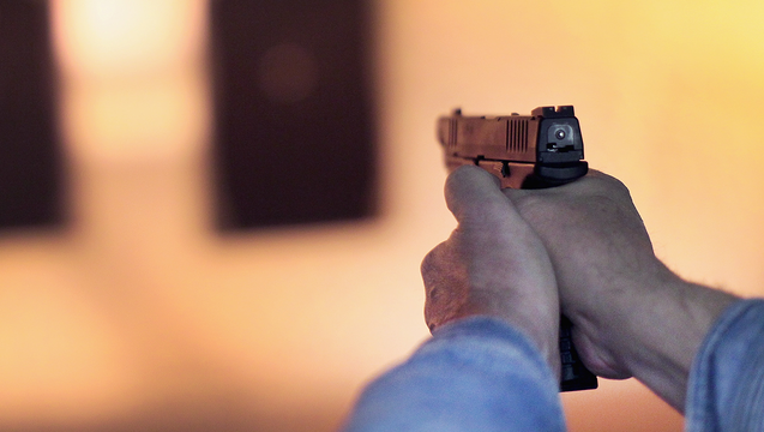School ‘guardian' expansion goes to DeSantis

A marksman sights in on a target during a class he was taking to qualify for an Illinois concealed carry permit on February 14, 2014. (Photo by Scott Olson/Getty Images)
TALLAHASSEE, Fla. (NSF) - Republican lawmakers on Wednesday gave final passage to a wide-ranging school safety bill that would allow classroom teachers to be armed, reversing a decision made last year after the mass school shooting in Parkland.
Despite backlash from Democrats, the Republican-dominated House passed legislation (SB 7030) that would expand the controversial school “guardian” program and carry out other recommendations of the Marjory Stoneman Douglas High School Public Safety Commission.
The vote was 65-47, with five Republicans voting against the bill and four Democrats missing the vote, including House Minority Leader Kionne McGhee, of Miami. The Senate passed the bill last week, meaning it is now ready to go to Gov. Ron DeSantis.
Lawmakers last year passed a major school-safety bill after a gunman killed 17 students and faculty members on Valentine’s Day at Marjory Stoneman Douglas High School in Parkland. The 2018 law included creating the guardian program, which allows school staff members to be armed to try to protect students from active shooters.
After heated debate, the Legislature decided last year to leave classroom teachers out of the guardian program unless they doubled in other roles, such as working as coaches or principals.
But the vote Wednesday would overturn that decision and allow teachers to volunteer to become trained guardians in school districts that authorize it. That reversal drew heavy criticism from Democrats.
“Here we are, one year later, and for some reason the carefully crafted compromise that agonized all of us has just been completely abandoned and tossed out the window,” Rep. Carlos Guillermo Smith, D-Orlando, said.
During an emotional debate that lasted three hours, Democrats slammed Republicans for overturning the 2018 decision and for blocking extra precautions. Democrats argued the change will likely result in a loss of life and endanger minority students across the state.
But Republicans stood their ground and maintained the program offers extensive training to school staff members who want to serve as guardians.
“We cannot prevent a shooting, but we can protect against one,” said Rep. Jennifer Sullivan, a Mount Dora Republican who sponsored the bill in the House.
School districts across Florida’s 67 counties, however, have been reluctant to participate in the guardian program. Only 25 school districts have established the program in one way or another under last year’s law. The bill seeks to give districts flexibility to participate in the program, even if their county sheriff’s offices do not want to do so.
The bill reflects the work done in the last year by the state commission, which was created in the 2018 law to investigate the Parkland school shooting and make recommendations about school safety.
Lawmakers relied on commission recommendations in the bill, such as taking steps to improve data collection on incidents that occur on school premises that could pose a threat to students; expanding mental-health services at schools; and enhancing information-sharing between schools about new students’ histories with behavioral issues.
With the bill heading to DeSantis, groups opposing the measure are launching renewed efforts to block it.
The gun-control advocacy group Moms Demand Action for Gun Sense in America plans to deliver hundreds of letters to the governor’s office that detail arguments of residents who oppose the bill.
“We are frustrated and angry that members of the House ignored the message today, and as we register to vote, we won’t forget that they turned their backs on us. We call on Gov. Ron DeSantis to veto this bill,” said Jovanna Liuzzo, a volunteer with the Florida chapter of Students Demand Action for Gun Sense in America.
The state’s largest teachers union also slammed lawmakers for passing the bill and urged school districts to speak up against the guardian program, arguing that they will be the “last line of defense on this issue.”
“If a local district wants to let teachers carry weapons, parents and education should ask some tough questions. Will teachers wear guns, or how will firearms be stored? Will parents and students be told if the teacher in any given classroom is armed?” said Fedrick Ingram, the president of the Florida Education Association.

